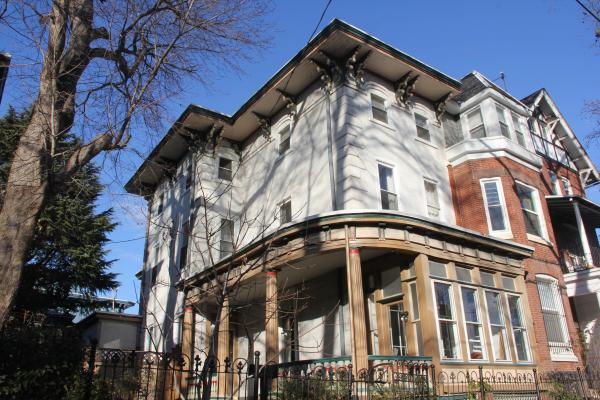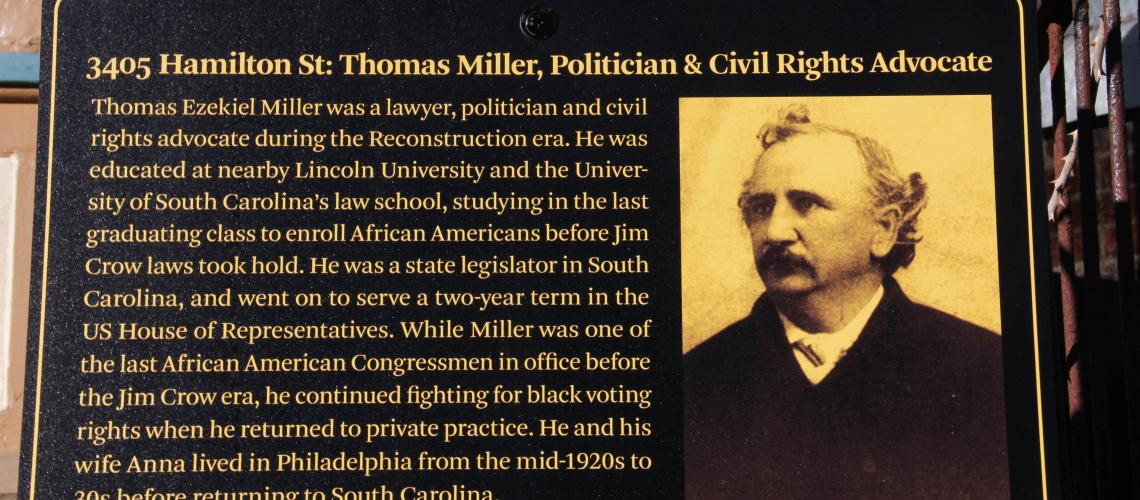Historical marker honoring Thomas E. Miller at the house he and his wife owned at 3405 Hamilton Street in Powelton.
Thomas E. Miller made his mark in history in South Carolina, where he bravely served as a four-time black legislator and one-time representative to the U.S. House between the Reconstruction and Jim Crow eras. Miller spent at least a decade of his later life in the Powelton neighborhood.
The adopted son of a freed slave, Thomas E. Miller, a light-complexioned black who might have “passed for white” in the North, chose to spend most of his adult life in his native state of South Carolina, where he served as a black champion of civil rights in the turbulent fifty years that followed the Civil War. Those decades, which spanned the Reconstruction, “Redeemer,” and Jim Crow eras of Southern history, found him serving in the South Carolina general assembly and senate, and for a brief time in 1890 in the U.S. House of Representatives. One of a handful of black delegates elected to the South Carolina Constitutional Convention in 1895, Miller spoke and voted against the white supremacist-dominated convention’s insertion of poll taxes and literacy tests for voting in the state’s new Jim Crow constitution. For reasons that remain unclear, Miller and his wife, Anna, in or around 1921, chose to move north to Philadelphia and the Powelton neighborhood, where they lived for about a decade with their daughter Pansy and her husband, Dr. Charles W. Maxwell, at 3405 Hamilton Street. In the early 1930s, the Millers returned to South Carolina, where they lived out their final years.
Stories in this Collection
 1849–1938 Thomas E. Miller bravely forged a political career as a black state legislator and state senator in South Carolina during the turbulent decades that followed the Civil War. He also served briefly in the U.S. House of Representatives. In his later life, Miller resided for about a decade with his wife and two other family members in a house the couple owned in Powelton. |
